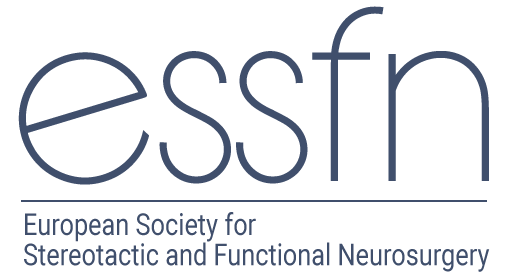Martin Jakobs, Attilio Della Torre, Kuan Hua Kho, Lina Rafaella, Barzaghi, Marcin Rusinek, Michele Rizzi, Elena Jiltsova, Ali Razmkon, Niels van der Gaag
Having travelled Europe from the Karolinska Institute Stockholm in the north to the Maltese presidential palace in the south with stops in Marseille, Lausanne and lastly Ghent, this small yet growing group of functional neurosurgeons represents the first ones to acquire the Stereotactic and Functional Neurosurgery diploma, awarded by the educational committee of the ESSFN. Looking back at our journey over several years, the motivation to attend the ESSFN training courses ranged from getting the possibility to deepen the knowledge in one particular field to acquiring a compelling overview on the field of functional neurosurgery. To many of us the diploma ultimately and formally confirms our interest and skill in the field of functional neurosurgery, and while the trend of national and European regulations to acquire certification for subspecialties continues, the ESSFN diploma may gain further importance in the future.
Although generally being regarded as a subspecialty with the highest degree of innovation and future potential, stereotactic and functional procedures are not part of the regular training in several European countries to qualify for the neurosurgery board exams. Therefore, the accessibility to the field may be limited and the possibilities of functional neurosurgery may not be very well known to residents. The ESSFN training courses offer a wonderful opportunity for residents to get an in-depth experience in functional neurosurgery by a group of highly-experienced and skilled tutors. Furthermore, the ESSFN training courses represent, other than commercial fellowships through medical device companies, a really independent, all-encompassing and balanced way to be educated in functional neurosurgery. To our knowledge no other neurosurgical society in the world is currently able to offer anything that comes close to the ESSFN training course program with regards to quality of the content, excellence of faculty and scientific appeal.
Our journey with the ESSFN will not end with the acquisition of the diploma. In a far-sighted project, the society reached out to us to form a young functional neurosurgeons’ task force. The task force is meant to emphasize on the needs and demands of residents and young fully-trained neurosurgeons with a special interest in the field of functional neurosurgery: improving accessibility to the field of functional neurosurgery, connecting with experts in the field to get help with specific cases and creating a network for job and research opportunities.
Over the summer the task force will gather ideas for concrete projects and proposals to be presented to the board of the society. We are grateful for the opportunity that the ESSFN has given us with the training courses, now it is our privilege to represent and further develop the role of young functional neurosurgeons within the society and within Europe.
